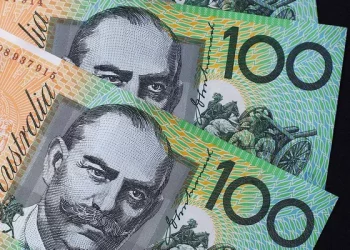Exchange rates determine how much one currency is worth in relation to another. These rates fluctuate constantly based on a variety of factors including economic indicators, market sentiment, geopolitical events, and central bank policies. For instance, if the Thai baht weakens against the British pound, you will receive fewer pounds for the same amount of baht. Conversely, a stronger baht will yield more pounds. Understanding the nuances of exchange rates helps individuals and businesses make informed financial decisions, especially when transferring funds, making purchases, or planning international travel.
What Influences the GBP/THB Exchange Rate?
Several key factors influence the exchange rate between the Thai baht (THB) and the British pound (GBP):
- Economic performance: Economic growth, inflation, employment, and trade balances in both Thailand and the United Kingdom play significant roles in determining the strength of their respective currencies.
- Interest rates: When interest rates rise in the UK, investors may prefer to hold assets in pounds, increasing the demand and value of GBP. The same principle applies to Thailand.
- Political stability: Political uncertainty tends to weaken a country’s currency. A stable political climate in either country can strengthen its respective currency.
- Market speculation: Traders and investors often anticipate movements in currency values and adjust their positions accordingly, causing fluctuations in exchange rates.
These factors interact in complex ways, and even minor developments can cause noticeable shifts in exchange values.
Where to Check Current Exchange Rates
To find the most accurate and current exchange rate between the Thai baht and British pound, it’s recommended to use trusted financial sources. These may include:
- Online currency converters: Websites like XE, OANDA, and X-Rates provide real-time exchange rates.
- Banks and financial institutions: Most banks offer their own exchange rate calculators on their websites.
- Currency exchange services: Companies such as Travelex or Western Union display rates online and in their physical locations.
- Mobile apps: Apps like Revolut, Wise (formerly TransferWise), and Currency offer real-time exchange rates and historical charts.
Keep in mind that the rate you see online is often the mid-market rate. When exchanging money, providers typically add a margin to this rate.
Calculating 500 Thai Baht in British Pounds
To calculate how much 500 Thai baht is in pounds, you need to know the current exchange rate. Let’s assume, for illustration purposes, that the rate is 1 GBP = 45 THB. This rate means that one British pound is equivalent to forty-five Thai baht.
Using the formula:
Amount in GBP = Amount in THB / Exchange Rate
So:
500 THB / 45 = 11.11 GBP
Therefore, 500 Thai baht would be approximately £11.11, assuming an exchange rate of 1 GBP = 45 THB. Always check the latest rate before performing such conversions.
Real-World Examples of Exchange Rate Application
Let’s look at some real-world scenarios to understand how this conversion might impact different users:
- Travelers: A UK tourist visiting Thailand might want to exchange pounds for baht before traveling. Understanding the rate ensures they get fair value and can budget appropriately.
- Expats: British expatriates living in Thailand who receive their income in pounds will benefit from understanding when the exchange rate is favorable.
- Importers and exporters: Businesses trading goods between the UK and Thailand need to be aware of fluctuations, as currency shifts can impact pricing and profit margins.
- Students: Thai students studying in the UK often receive financial support from home. Knowing how much baht equates to pounds ensures they manage their funds effectively.
In all cases, even a small difference in exchange rates can lead to noticeable variations in the amount received or paid.
Currency Exchange Options
There are multiple ways to convert Thai baht into British pounds, each with its own benefits and drawbacks:
1. Banks
Banks are generally considered safe and reliable. They offer currency exchange services and allow international transfers. However, banks often charge higher fees and may offer less competitive rates compared to other providers.
2. Online Money Transfer Services
Platforms like Wise, PayPal, and Revolut offer more competitive rates and lower fees than traditional banks. These services are also faster and more convenient for users who prefer digital solutions.
3. Physical Currency Exchange Offices
These are common in tourist areas and airports. They provide immediate cash exchange but usually at less favorable rates. It’s advisable to compare several providers to get the best deal.
4. ATMs
Withdrawing cash directly in local currency using a debit or credit card can be convenient. Be aware of international withdrawal fees and exchange rate margins applied by the card issuer.
Each method serves different needs, and the right choice depends on your specific situation and preferences.
How to Get the Best Exchange Rate
To get the most value when converting Thai baht to British pounds, consider the following tips:
- Compare providers: Don’t settle for the first exchange rate you find. Check different sources, including banks, online platforms, and currency kiosks.
- Avoid airport exchanges: These tend to have the worst rates and highest fees.
- Use currency conversion apps: Apps often provide real-time updates and help you track historical trends.
- Plan ahead: If you notice a favorable rate, consider exchanging in advance rather than at the last minute.
- Consider forward contracts: Some financial services allow you to lock in a rate for a future transaction, protecting you from unfavorable fluctuations.
These strategies help you retain more value during conversion, whether for travel, business, or remittances.
Exchange Rate Trends: Historical Perspective
Understanding past trends can provide insights into future movements. Over the past decade, the GBP/THB exchange rate has experienced significant fluctuations due to:
- Brexit: The 2016 vote for the UK to leave the EU caused a sharp drop in GBP value.
- COVID-19: The pandemic introduced economic uncertainty, influencing both currencies.
- Inflation and interest rate policies: Central bank actions in response to inflation have significantly influenced exchange rates.
For instance, in early 2020, 1 GBP was worth around 40 THB. By late 2023, it had risen to about 45 THB. These shifts reflect the economic and political landscapes of both countries.
Risks Involved in Currency Exchange
Exchanging currency involves certain risks:
- Rate fluctuations: The rate can change quickly due to market movements, leading to potential losses.
- Hidden fees: Some providers quote attractive rates but add fees during the transaction.
- Fraud: Always use reputable sources to avoid scams.
Minimizing these risks involves staying informed, using trusted platforms, and understanding the terms and fees involved in each transaction.
Conclusion
Converting 500 Thai baht into British pounds involves more than a simple numerical calculation. It requires understanding the current exchange rate, the factors influencing it, and the methods available for conversion. As of today, using a hypothetical exchange rate of 1 GBP = 45 THB, 500 Thai baht would be approximately £11.11. However, this amount may vary depending on real-time rates, transaction fees, and the chosen exchange method.
By staying informed and using strategic approaches, individuals and businesses can make the most of their currency conversions. Always check current rates through trusted sources and compare options to secure the best value.
Related Topics:

























